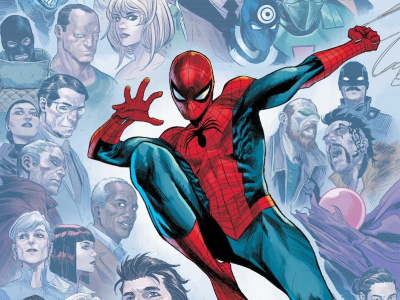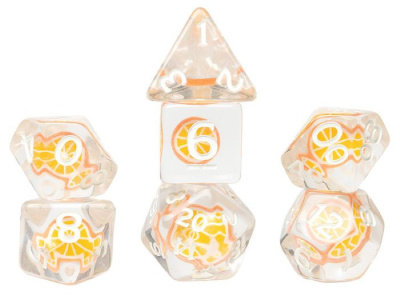ICv2: We talked in February, and at that point, you said about the second or third week in January, you'd started to see some sales movement in a negative direction. What's happened since then in terms of manga sales?
Kevin Hamric: Unfortunately, the category is still trending down a bit. The entire book industry in the US is down 3.2 percent right now. The category is down 23 percent. That's BookScan numbers; that's right for what they track. If things continue like this, it'll still end up being the third‑best year on record. We're still trending above 2020 right now, VIZ in particular and the category as well. With Covid, we hit this huge high. Now I think we're going to probably finish down this year, probably be flat in '24, and then see that really nice organic growth that we were experiencing before the pandemic, anywhere from two to eight percent per year, just going up year after year after year.
Call it what you will: a market correction, just a softening, there's no really good way to put a particular name to it. All of entertainment is down; all of consumer products is down; the cost of everything has gone up; people are traveling. They're just not buying books and going to movies and watching anime right now.
One thought we had about this is that perhaps part of the huge surge in manga during Covid was an acceleration of purchases that might have happened in the subsequent two or three years. Do you think that might be part of it?
Absolutely. People were stuck at home in lockdowns, and they finally had the time to read what they had always been intending to read. A lot of binging went on during Covid; our box set sales were incredible. We know people were buying full series at a shot.
The good news is we're still seeing very high sales on a lot of volume ones in series, which means we're getting new readers to the series and/or we're getting new readers to the category. We're very happy with that.
Do you see any differences by channel?
Not really. If anything, there's a little softening in the online. Brick‑and‑mortar stores are doing particularly well, and the mass merchandisers, Target and Walmart, are just doing fabulously well right now.
Last year, we had done a mid-year check and the comic stores were actually growing faster (of course from a much lower base) than the book channel. They have more room to move upward,or at least stay more stable.
They are. We field a lot of questions from comic shops and independent store owners about how to expand manga in their stores. They're realizing they may need to shrink something else, whatever that is in the stores, if it's Western graphic novels or whatever, and learn how to expand in manga.
Funko POP!s
[laughter] There's a few of those around.
There's some space there. What are you seeing from title to title? Are there any particular bright spots in terms of titles that are still on the upswing or things that are moving in different directions than the rest of the market?
The big boys are still growing, like Chainsaw Man, Spy x Family, Jujutsu Kaisen. Even Demon Slayer (although that series has ended) is still growing.
A few things that are happening right now: Ever since the movie One Piece Red came out and volume 100 [released], we've seen really good growth in One Piece. Now we're up to One Piece Vol. 103, One Piece Vol. 104, and we're selling more than ever. Even the earlier part of the series, one, two, three, four, the 3‑in‑1s, the cookbook, the compendiums are all selling right now.
As of late, something that's happening globally is Vagabond. Vagabond has just taken off again. I know it's the same creator as Slam Dunk, and the Slam Dunk movie is out, but there doesn't seem to be any tie‑in to that anywhere going on. I think we've just got a new generation of readers gravitating toward it.
Also, the reason I say that with the generational reader is because we've also seen an increase in sales of Naruto, Bleach, Death Note, these classics that I think are just gaining a whole new readership right now.
During Covid, your deep backlist was selling better. Is that where some of this drop‑off is coming from?
No, our frontlist‑to‑backlist sales ratio has remained the same. It's just series by series, spread out a little more.
Thank you.










